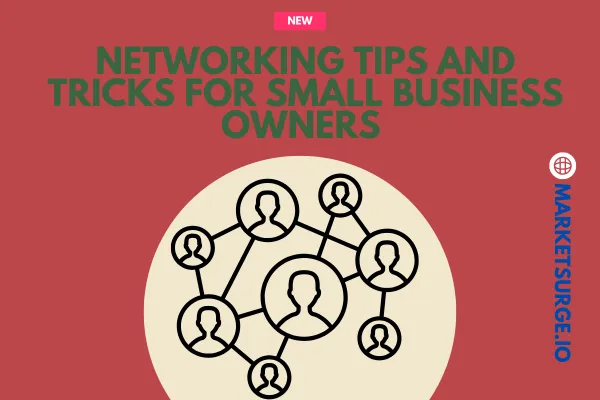
Networking Tips and Tricks for Small Business Owners
Networking is more than just a business buzzword; it’s a crucial tool that allows small business owners to connect, learn, and grow. Whether you’re looking to expand your client base, find collaborators, or increase your visibility, effective networking can be the key to unlocking new opportunities.
Overcoming Common Networking Challenges
Small business owners face unique challenges when it comes to networking. Here are some common obstacles and how to overcome them:
1. Time Constraints
Running a small business is demanding, leaving little time for networking. However, missing these opportunities can mean losing out on valuable connections. By scheduling regular networking activities as part of your weekly or monthly goals, you can stay consistent without overwhelming your schedule.
2. Uncertainty About Where to Start
The world of networking can be daunting, especially for those new to the process. Defining specific networking goals, like finding clients or partners, can help you choose the right events or groups that align with your needs.
3. Making Authentic Connections
Networking often feels transactional, but building genuine relationships is key. Focus on listening and offering help first to create a natural rapport that leads to stronger, long-term connections.
4. Navigating Introversion or Social Anxiety
Networking doesn’t come naturally to everyone. Smaller or virtual events can be more comfortable for introverted owners. Preparing questions or conversation starters can also help ease interactions.
5. Difficulty Following Up
Following up is essential for effective networking. Set aside time each week to send follow-up emails or messages to keep connections warm without overwhelming your schedule.
Essential Networking Tips and Tricks
Here are some tried-and-true strategies to make the most of your networking efforts:
Set Clear Networking Goals
Know what you want to achieve through networking, whether it’s finding new clients or connecting with industry peers. Set specific, measurable goals like “gain three new client leads per event” to give your efforts direction and focus.
Attend Relevant Events Regularly
Consistent attendance at events helps establish your presence and builds familiarity among peers. Identify events that attract your target audience, such as trade shows or community events. Virtual events like webinars can also be valuable.
Prepare Your Elevator Pitch
An elevator pitch provides a quick, engaging way to introduce your business. Create a concise 1-2 sentence description focusing on your unique benefits, such as “I run a landscaping business that specializes in sustainable, eco-friendly lawn care solutions for local homeowners.”
Listen and Show Genuine Interest
Networking is about building relationships. Show genuine interest by asking open-ended questions and actively listening, which helps you understand others' challenges and goals.
Follow Up After Making Connections
Turn initial meetings into meaningful relationships by following up within 24-48 hours. Send personalized messages mentioning specific details from your conversation to make it memorable.
Join Industry or Professional Groups
Professional groups provide valuable insights and support. Look for industry-specific associations or local business groups to stay informed about trends and best practices.
Bring Value to Others First
Networking thrives on a give-and-take model. Establish trust and goodwill by offering value first, such as sharing resources or introducing contacts.
Be Consistent on Social Media
Stay connected with your network by engaging on platforms like LinkedIn. Post valuable content and participate in discussions relevant to your field to stay top-of-mind.
Practice Patience and Persistence
Building a strong network takes time. Nurture relationships by consistently checking in or inviting people to coffee to keep connections strong.
Stay Open to Opportunities
Some of the best connections come from unexpected places. Attend a variety of events, both online and offline, to broaden your opportunities and gain new insights.
Recommended Resources and Tools
Networking Apps: Use LinkedIn, Shapr, or Meetup to find and connect with relevant professionals.
Webinars and Online Courses: Invest in resources offering tips on effective networking strategies.
Small Business Networking Groups: Join local or industry-specific groups for community support and collaboration.
Time Management Tools: Utilize tools to better manage your time, making it easier to fit networking activities into your schedule.
Professional Development Resources: Enhance your networking skills through workshops, seminars, or mentorship programs.
By incorporating these tips and strategies, small business owners can develop an effective networking approach, strengthen their presence, and build meaningful connections that support sustainable business growth. Remember, networking is a long-term investment in relationships that can bring returns in ways you might not expect—so stay open, engaged, and proactive in your efforts.








